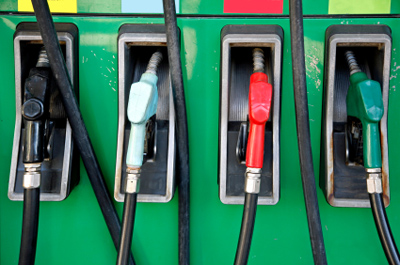Administration, Auto Industry in Sync with Americans' Opinion on Fuel Economy

Against a backdrop of sharp differences on a variety of current public policy issues, new polling by the
Pew Clean Energy Program demonstrates strong support from American voters for immediate action on vehicle fuel economy.
In a national poll* conducted for Pew by the bipartisan polling team The Mellman Group, Inc. and Public Opinion Strategies between July 8-12, 2011, 91 percent of Americans agree that dependence on foreign oil is a “very serious” or “somewhat serious” threat to U.S. security, with 61 percent indicating it is a “very serious” threat. These views cut across demographic and partisan lines, with 65 percent of Republicans, 57 percent of Democrats and 62 percent of independents identifying dependence on foreign oil as a “very serious threat” to national security.
The polling results reinforce news reports of an ambitious proposed interim fuel economy rule agreement reached by the Obama administration, the auto industry and other stakeholders to improve fuel efficiency for cars and light-duty trucks in model years 2017-2025. The proposed standard is to be announced Friday, July 29, 2011.
The survey found 82 percent of respondents support an increased fuel efficiency standard of 56 miles per gallon (mpg) by 2025, with 68 percent who “favor strongly.” Overwhelming majorities in every demographic subgroup support increased fuel efficiency to 56 mpg, including 70 percent of Republicans, 87 percent of Democrats and 88 percent of independents.
Voters across all regions also backed increasing fuel economy to 56 mpg, with 80 percent in the Northeast, 85 percent in the Midwest, 77 percent in the South and 86 percent in the West. Further, 92 percent of Americans believe it is either “very important” (69 percent) or “somewhat important” (23 percent) for the United States to take action now to increase fuel efficiency.
“This proposed rule will give Americans what they want," said Phyllis Cuttino, director of the Pew Clean Energy Program. "It will reduce our dependence on foreign oil, save consumers money at the pump, spur technological innovation, create jobs in the automobile industry and reduce harmful pollution.”
"Just as they did in 2009, the administration, the auto industry and other stakeholders have come together and agreed to a higher mpg standard—this time 54.5 mpg—that will both serve the interest of the public and provide market certainty for industry,” Cuttino said. “We look forward to seeing the details of the proposed rule. As it is finalized over the coming months, the administration must ensure that it is not further watered down."
*This analysis represents the findings of a national survey of 1,000 likely 2012 general election voters. Interviews were conducted by telephone July 8-12, 2011, using a national registration-based sample. Respondents were screened for being likely voters. The margin of error for this survey is +/-3.1 percent at the 95 percent level of confidence. The margin of error is higher for subgroups.








